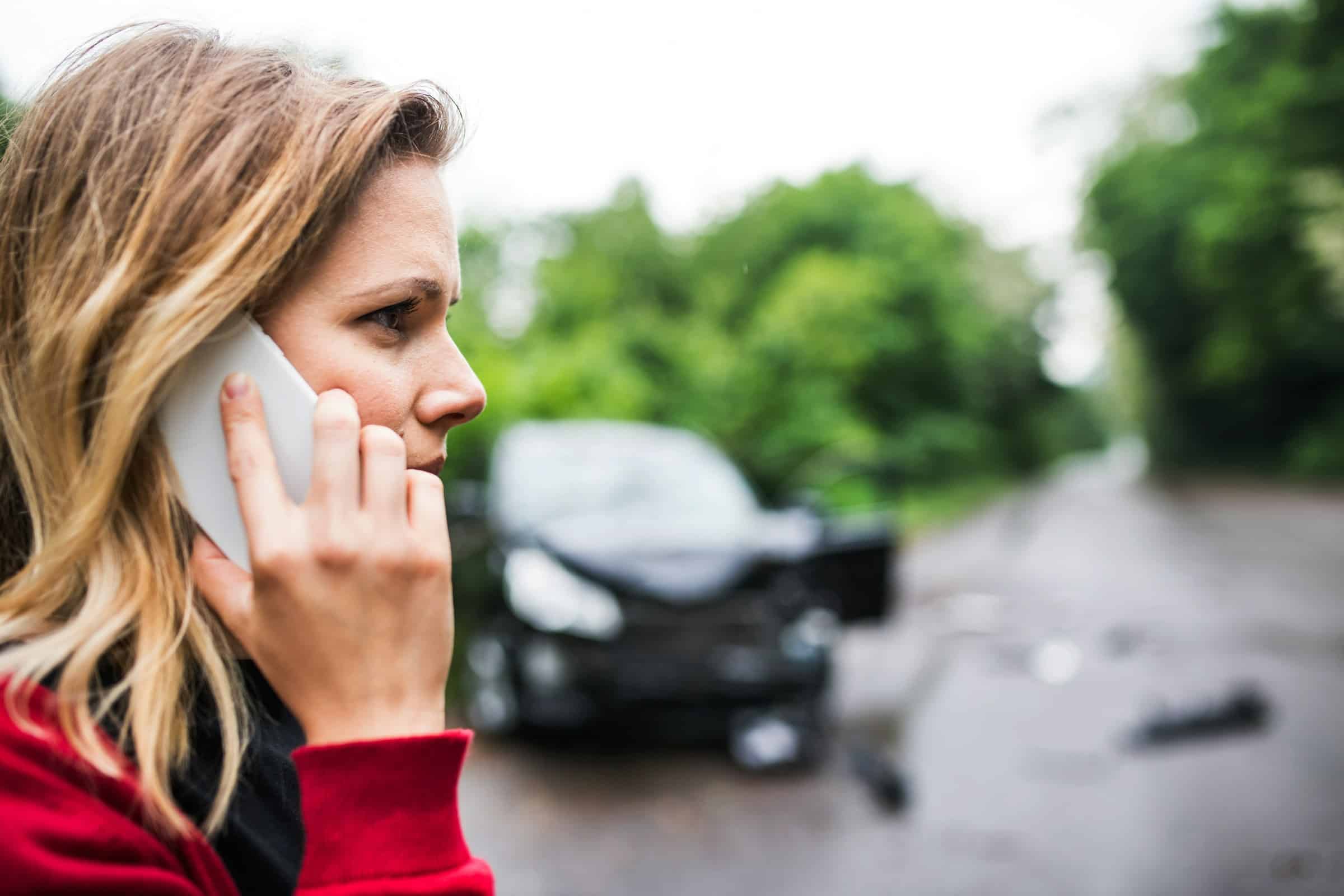Why Is It Important to Understand the Traffic Accident Compensation Process?
Commuting daily through the city is part of everyday routine: whether by car, public transport, bicycle, or on foot, we all share the same road space. However, this daily activity also comes with risks. Even when we act cautiously, traffic accidents continue to happen frequently—often due to the recklessness of other road users.
Traffic safety doesn’t depend solely on oneself, but also on the responsible behavior of others sharing the streets. When that basic level of care is lost, accidents become a sad and very real possibility.
If you’ve been involved in such an incident, it’s crucial to understand how the legal process works to claim compensation for a traffic accident. Knowing the steps to take can make the difference between receiving fair compensation or being left unprotected.
This guide explains clearly and practically how to act if you’re the victim of an accident, what rights protect you, and how to start a formal claim against the insurance company or those responsible.
Key Aspects to Consider Before Filing a Traffic Accident Claim
Before taking the first step to request compensation for a traffic accident, it is essential to understand certain legal points that may determine the success of the claim. Not all cases are the same, and in many of them, it will be necessary to resort to legal procedures that require expert advice.
The Importance of Legal Support
When someone is involved in an accident, they often face complex procedures, medical evaluations, dealings with insurance companies, and sometimes legal proceedings. At our traffic law firm, we always recommend seeking professional legal advice from the very beginning. A lawyer will not only handle the claim process but also defend your rights against the insurance company, explain each stage of the process, and always work toward achieving the best possible outcome.
When Is Compensation Applicable?
It’s important to understand that financial compensation is only applicable if the victim is not solely responsible for the accident. For example, if someone crosses outside a designated pedestrian crossing and is hit by a vehicle, the insurance company may claim negligence and deny the compensation.
Likewise, in order to be entitled to compensation, there must be actual damage—whether physical, emotional, or material. This means that the harm suffered must be proven, such as an injury, the destruction of a vehicle, or a quantifiable psychological impact.
What Do We Mean by Compensation in a Traffic Accident?
When a person is harmed in a traffic accident, the law grants them the right to claim financial compensation, as long as they can prove the damages suffered and are not solely responsible for the incident. This compensation, legally known as traffic accident compensation, is intended to restore, as much as possible, the balance disrupted by the harm caused.
It is not an arbitrary financial gain, but rather a way to compensate the victim for the physical, psychological, and material consequences resulting from the accident. In other words, the purpose of compensation is to make up for the losses—not to unjustly enrich the affected person.
How Is the Amount of Compensation Determined?
To accurately calculate the value of the compensation, it is essential to clearly and precisely prove the harm suffered. This involves gathering and preserving all relevant documentation: medical reports, proof of treatments, invoices, repair receipts, expert assessments, and any other element that serves as objective evidence of the damage.

What Damages Can Be Included in Traffic Accident Compensation?
When a person is involved in a traffic accident, it’s not only their physical and emotional well-being that can be affected, but also their property and ability to earn income. That’s why, when filing a claim, it’s essential to correctly identify all compensable damages—both material and personal.
At our law firm specializing in traffic accidents, we analyze each case to ensure that no damage goes unassessed.
Compensation for Material Damages
Material damages refer to all losses affecting physical property, excluding harm to the victim’s body.
This category includes:
- The repair or replacement of the vehicle involved in the accident.
- Damaged accessories, such as helmets, electronic devices, luggage, or other items being transported at the time of the incident.
- Costs related to towing services, private assessments, or other expenses resulting from the accident.
If the cost of the repair exceeds the value of the vehicle, compensation is provided based on either the market value or replacement value, as determined by the insurance company and applicable regulations.
Compensation for Physical Injuries
Personal injuries are a key part of the claim. Their assessment takes into account various factors, such as:
- The type and severity of the injury
- The recovery time or temporary disability
- The medical treatments required (hospitalization, rehabilitation, surgical procedures, etc.)
- Any permanent aftereffects that may limit the victim´s daily life
For example, a bone fracture involves not only medical leave but also direct costs such as physiotherapy, medication, assisted mobility, or even home modifications if the injury is severe.
Loss of Earnings and Diminished Quality of Life
In addition to direct expenses, the law recognizes what is known as loss of earnings—that is, the income the victim loses as a result of the accident. This applies to both salaried employees and self-employed individuals and must be supported with financial documentation (pay slips, tax returns, etc.).
Compensation can also be claimed for diminished quality of life if the victim is unable to return to their usual activities or suffers permanent limitations to their physical abilities.
Psychological Damages After a Traffic Accident
In many cases, accident victims not only suffer physical injuries but also experience psychological consequences such as anxiety, post-traumatic stress, or fear of driving.
If these effects are properly documented through psychological or psychiatric reports, they can be included in the compensation claim, as recognized by the Spanish Traffic Injury Assessment Scale (Baremo de Tráfico) and current case law.
Why Hire a Specialized Lawyer?
Correctly assessing the damages and losses resulting from an accident is not easy. Insurance companies often minimize compensation amounts or overlook aspects such as moral damage, loss of earnings, or minor long-term effects. That’s why having a lawyer specialized in traffic accident claims makes all the difference.
At our firm, we carry out a comprehensive evaluation of all damages, defend your rights against the insurance company, and support you every step of the way until you receive fair compensation.
Have you been in an accident and don’t know what you’re entitled to?
Get in touch with us and request a free, no-obligation consultation. We’re here to help you.
Get in touch with us and request a free, no-obligation consultation. We’re here to help you.
Experiencing an accident can be overwhelming, but staying calm and acting clearly is essential to protect your rights and ensure an effective claim. In this section, we explain what to do immediately after an accident and which elements will be key to obtaining compensation for a traffic accident.
Identify the other party and collect their information
The first step is to obtain the details of the driver involved. It is essential to write down their full name, identification number, contact information, and address. You should also record the vehicle details: license plate number, make, model, color, and the registration certificate number.
This information will be necessary both for completing the amicable accident report and for contacting their insurance company.
The Importance of the Amicable Accident Report
One of the most valuable documents after a minor accident is the amicable accident report. It is a standardized form signed by both parties involved in the incident. This document includes:
- The circumstances of the accident
- The material damage sustained
- The versions of the events
- The possible admission of liability
Its value lies in the fact that it speeds up the processing with insurance companies and can help reduce potential conflicts later on. Whenever possible, it is advisable to sign it at the scene of the accident.
What Happens If There Is No Agreement? The Police Report
If no agreement is reached or if the accident is serious, it is necessary to call the police. The officers will prepare a police report, an official document that includes an objective description of the incident, statements from those involved and any witnesses, as well as their initial assessment of the events.
This report is especially useful when the insurance company denies liability or when there are discrepancies in the drivers’ accounts.
How to Prove Damages and Losses After a Traffic Accident
Once the initial evidence has been collected at the scene of the accident, it is time to document and accurately demonstrate the extent of the damages suffered, both physical and material. This phase is key for the insurance company to acknowledge liability and determine the amount of compensation for the traffic accident fairly.
Medical Evidence: Essential for Claiming Compensation for Injuries
If you have suffered physical injuries, the first step is to go to a medical center as soon as possible, preferably within the first 72 hours after the accident. This promptness is crucial, as any delay may be used by the insurance company to question the connection between the accident and the injuries.
To prove the injuries, the following will be required:
- Detailed medical reports (emergency, primary care, specialists)
- Certificates of sick leave and medical progress
- Invoices for medication, treatments, rehabilitation, or psychological support
- Proof of travel to medical centers
Keeping all these documents and requesting copies at every medical appointment is key to the success of the claim.
Assessment of Material Damages
When the damages are material, such as the total or partial destruction of a vehicle, the following should be submitted:
- Repair estimates
- Independent expert reports
- Photographs of the damages
- Invoices for lost or damaged accessories (helmet, phone, glasses, luggage, etc.)
If the vehicle is declared a total loss, compensation can be claimed for the venal or market value of the car prior to the accident. Insurance companies generally try to minimize this value, so it is advisable to obtain a second independent appraisal.
Additional Evidence That Strengthens Your Claim
In addition to medical and technical documents, there are other types of evidence that can be decisive:
- Testimonies from eyewitnesses (written statements or collected by the police)
- Accident reconstruction reports
- Footage from security cameras or dashcams
- Documented conversations with the insurance company or other involved parties
In summary, the greater the quantity and quality of the evidence, the stronger the negotiation with the insurance company will be.
Why Hire a Traffic Law Expert Lawyer?
It is common for insurance companies to try to minimize the amount of compensation by citing lack of documentation, shared liability, or a restrictive interpretation of reports. For this reason, the involvement of a specialized lawyer not only speeds up the process but can also make the difference between fair and insufficient compensation. 
An experienced law firm:
- Assesses the viability and risks of the case
- Handles direct communication with the insurance company
- Drafts all necessary legal documents
- Represents you if the matter must be resolved in court
The success of a claim does not only depend on being right, but on being able to prove it legally.
Conclusion: If You’re a Victim, You’re Not Alone
If you’ve been involved in a traffic accident and suffered injuries or property damage, remember that you have the right to compensation — but it’s important to act clearly, stay organized, and seek proper legal support.
Had an accident and need guidance from a lawyer with experience in traffic cases?
We offer a free initial consultation to review your case and help you understand your options. Feel free to get in touch — we’re here to help.






